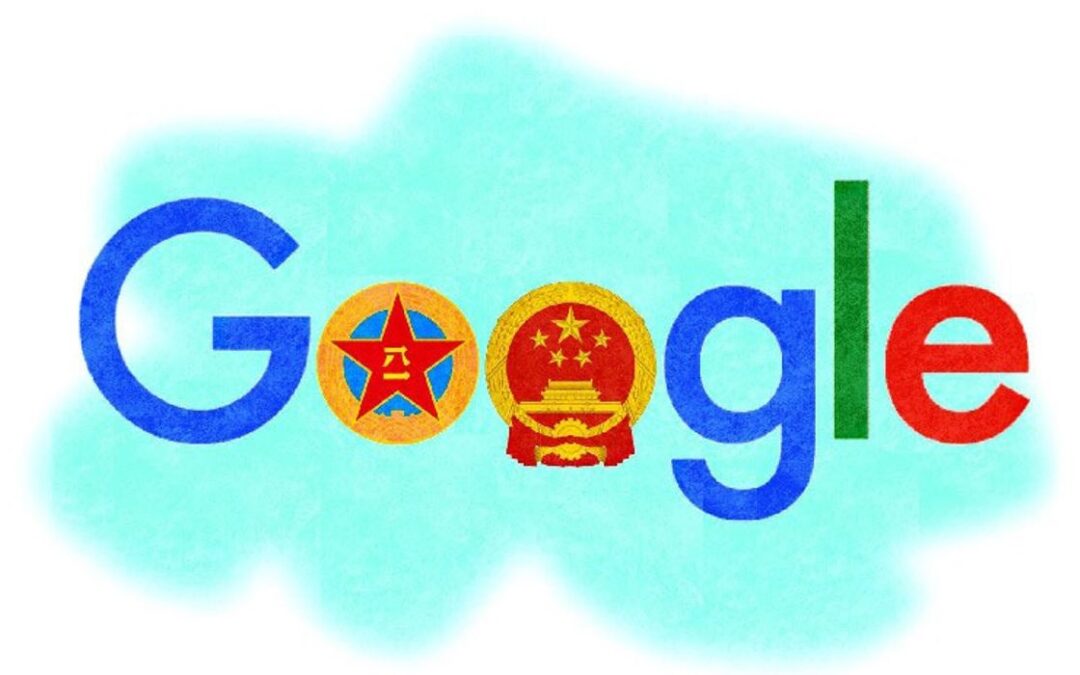The graphic pictured above was featured in The Washington Times concerning the Google and their Communist connection. The Times headline and sub-head read: “How Google is Communist China’s collaborator,
The company is a participant in ventures it must know directly benefit the People’s Liberation Army”. Photo courtesy The Washington Times.
For over 20 years Susan Wojcicki worked at Google. Her sister Ann Wójcicki was married to Sergey Brin co-founder of Google. In fact, Google’s founders based their operation out of her garage at one point. She went on to recommended and subsequently manage the $1.65 billion purchase of YouTube in 2006. And, in 2014, she became CEO of the video giant and led that division until spring 2023.
Due to her input and leadership many of the censorship policies at YouTube have her handprints on them. After being associated with Google for so long she decided it was time to give it up and leave the company that had profited her to the tune of $765 million dollars. Her policies at YouTube led to cries of censorship and shut the door on many YouTubers who suddenly had their YouTube channels blocked forever due to “violation” of arbitrary “community standards”. This is similar to how censorship works in many Communist governed countries like Poland.
The past CEO of YouTube has family who came from Communist Poland and who lived under Soviet Communism. Her Wikipedia bio states that her maternal grandparents were from Soviet Russia and her paternal grandparents lived in communist Poland. Following WWII her father, Franciszek Wójcicki, was a member of the Polish People’s Republic parliament in 1947.
Censorship is against American ideals. It violates not only the letter but the spirit of the First Amendment in the Bill of Rights concerning free speech.
Censorship in Communist Poland (The following excerpt is from Wikipedia)
Censorship in Communist Poland was primarily performed by the Polish Main Office of Control of Press, Publications and Shows, a governmental institution created in 1946 by the pro-Soviet Provisional Government of National Unity with Stalin’s approval and backing, and renamed in 1981 as the Główny Urząd Kontroli Publikacji i Widowisk (GUKPiW). The bureau was liquidated after the fall of communism in Poland, in April 1990.
Library collections were systematically cleansed, the majority of the books destroyed, some isolated in Party or academic libraries. A list of prohibited publications and black-listed writers was created in 1950 during the darkest years of Stalinism in Poland with some 1,682 items, and subsequently modified many times by the communist authorities in the Polish People’s Republic. Some writers popular before World War II, for example Wacław Kostek-Biernacki who was sentenced to death as an enemy of the state in 1953, had their books not only removed from libraries, but also meticulously destroyed.
In addition to the censorship of the publications, the state also jammed foreign radio stations, such as Radio Free Europe and Voice of America. The decades of relentless censorship fed the underground press and publications in Poland (called bibuła in Polish).
After the rise of Solidarity movement in 1980, independent editors were allowed to indicate, with a sequence [—-], that a fragment had been censored, instead of hiding such deletions or withdrawing their entire publications. Publishers demanded the right to leave a white space to indicate how much of the text was cut, but that was rejected. Nevertheless the change spelled a setback for GUKPiW and interventions were less common: an article with dozens of cuts might have a greater impact on the readers’ minds than the words missing.
The censorship law was eliminated after the fall of communism in Poland, by the Polish Sejm on 11 April 1990 and the GUKPiW was closed two months later.
Censorship in Poland was real, and it had devastating results on truth and information availability. Thanks to Susan Wojcicki Americans are still receiving a small taste of Communist style censorship that was instituted under her leadership. This writer is glad she has left the post.
The new and current CEO is Neal Mohan. He assumed the office spring 2023. Hopefully her successor will not be as eager to censor Americans as she was. We can always hope.





 RSS - Posts
RSS - Posts